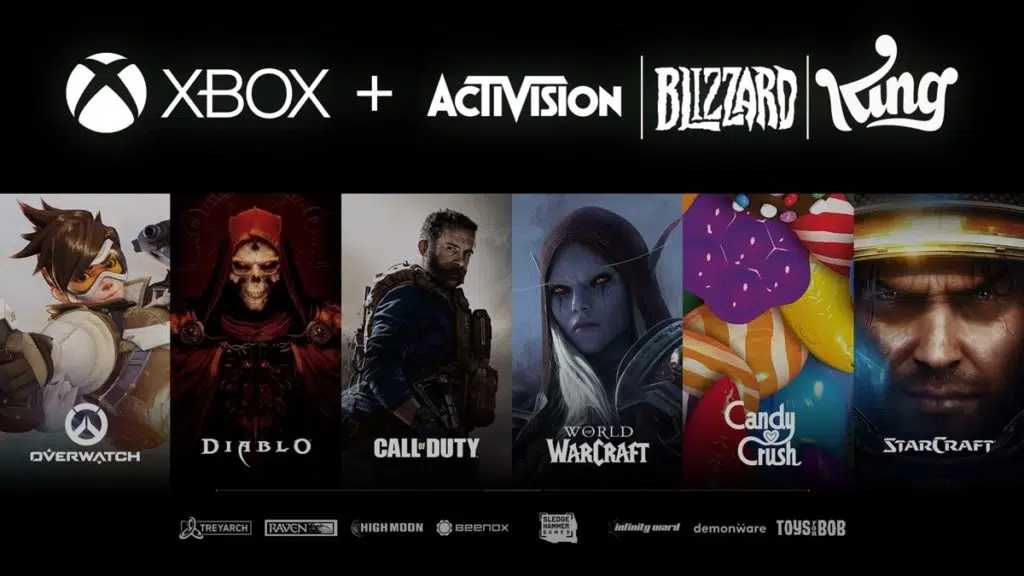
The European Commission has announced that it has approved, under the EU Merger Regulation, the proposed acquisition of Activision Blizzard by Microsoft in a deal worth $68.7 billion. During its in-depth investigation, the EU determined that the deal wouldn’t harm the console market, and while it did find that cloud gaming could be negatively affected—something that led the UK’s Competition and Markets Authority (CMA) to block the deal entirely back in April—the EU is apparently satisfied with the remedies that Microsoft had presented to address those concerns. “Microsoft’s proposals, accepted by the European Commission today, would allow Microsoft to set the terms and conditions for [the cloud] market for the next 10 years,” the CMA warned in a series of tweets that it sent out today to confirm that it “stands by its decision.”
“Video games attract billions of users all over the world. In such a fast-growing and dynamic industry, it is crucial to protect competition and innovation,” said Margrethe Vestager, Executive Vice-President in charge of competition policy. “Our decision represents an important step in this direction, by bringing Activision’s popular games to many more devices and consumers than before thanks to cloud game streaming. The commitments offered by Microsoft will enable for the first time the streaming of such games in any cloud game streaming services, enhancing competition and opportunities for growth.”
From an EU press release:
The Commission’s in-depth market investigation indicated that Microsoft would not be able to harm rival consoles and rival multi-game subscription services. At the same time, it confirmed that Microsoft could harm competition in the distribution of games via cloud game streaming services and that its position in the market for PC operating systems would be strengthened.
In particular, the Commission found that:
- Microsoft would have no incentive to refuse to distribute Activision’s games to Sony, which is the leading distributor of console games worldwide, including in the European Economic Area (‘EEA’) where there are four Sony PlayStation consoles for every Microsoft Xbox console bought by gamers. Indeed, Microsoft would have strong incentives to continue distributing Activision’s games via a device as popular as Sony’s PlayStation.
- Even if Microsoft did decide to withdraw Activision’s games from the PlayStation, this would not significantly harm competition in the consoles market. Even if Call of Duty is largely played on console, it is less popular in the EEA than in other regions of the world, and is less popular in the EEA within its genre compared to other markets. Therefore, even without being able to offer this specific game, Sony could leverage its size, extensive games catalogue and market position to fend off any attempt to weaken its competitive position.
- Even without this transaction, Activision would not have made its games available for multi-game subscription services, as this would cannibalize sales of individual games. Therefore, the situation for third-party providers of multi-game subscription services would not change after the acquisition of Activision by Microsoft.
- The acquisition would harm competition in the distribution of PC and console games via cloud game streaming services, an innovative market segment that could transform the way many gamers play video games. Despite its potential, cloud game streaming is very limited today. The Commission found that the popularity of Activision’s games could promote its growth. Instead, if Microsoft made Activision’s games exclusive to its own cloud game streaming service, Game Pass Ultimate, and withheld them from rival cloud game streaming providers, it would reduce competition in the distribution of games via cloud game streaming.
- If Microsoft made Activision’s games exclusive to its own cloud game streaming service, Microsoft could also strengthen the position of Windows in the market for PC operating systems. This could be the case, should Microsoft hinder or degrade the streaming of Activision’s games on PCs using operating systems other than Windows.
The proposed remedies
To address the competition concerns identified by the Commission in the market for the distribution of PC and console games via cloud game streaming services, Microsoft offered the following comprehensive licensing commitments, with a 10-year duration:
- A free license to consumers in the EEA that would allow them to stream, via any cloud game streaming services of their choice, all current and future Activision Blizzard PC and console games for which they have a license.
- A corresponding free license to cloud game streaming service providers to allow EEA-based gamers to stream any Activision Blizzard’s PC and console games.
Microsoft’s proposals, accepted by the European Commission today, would allow Microsoft to set the terms and conditions for this market for the next 10 years.
— Competition & Markets Authority (@CMAgovUK) May 15, 2023
[3/5]
